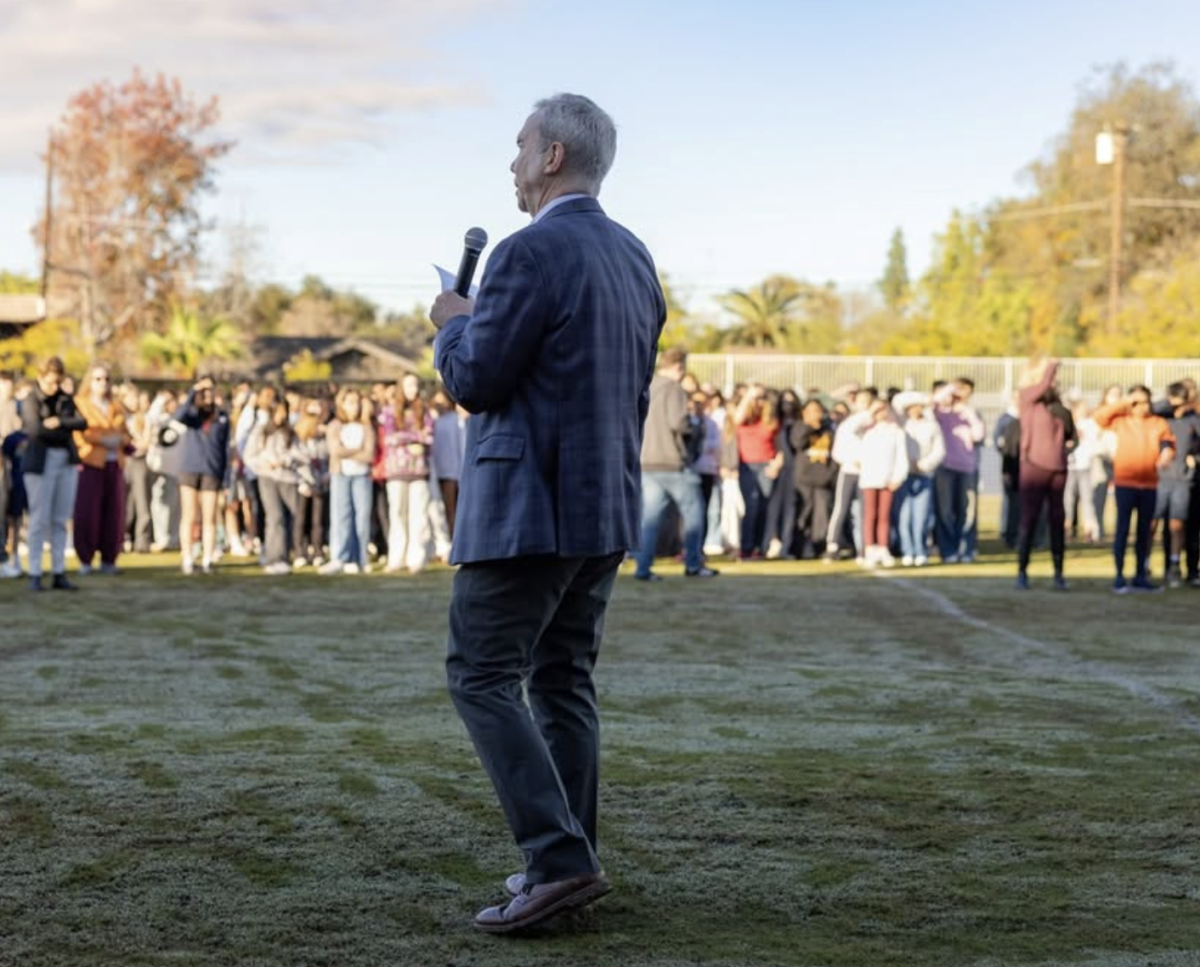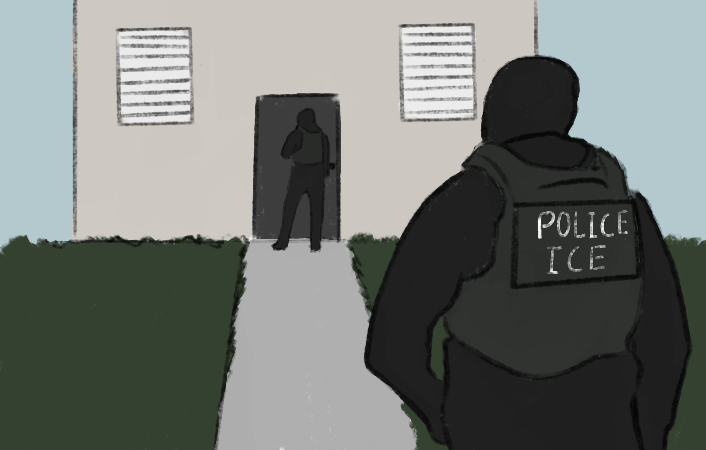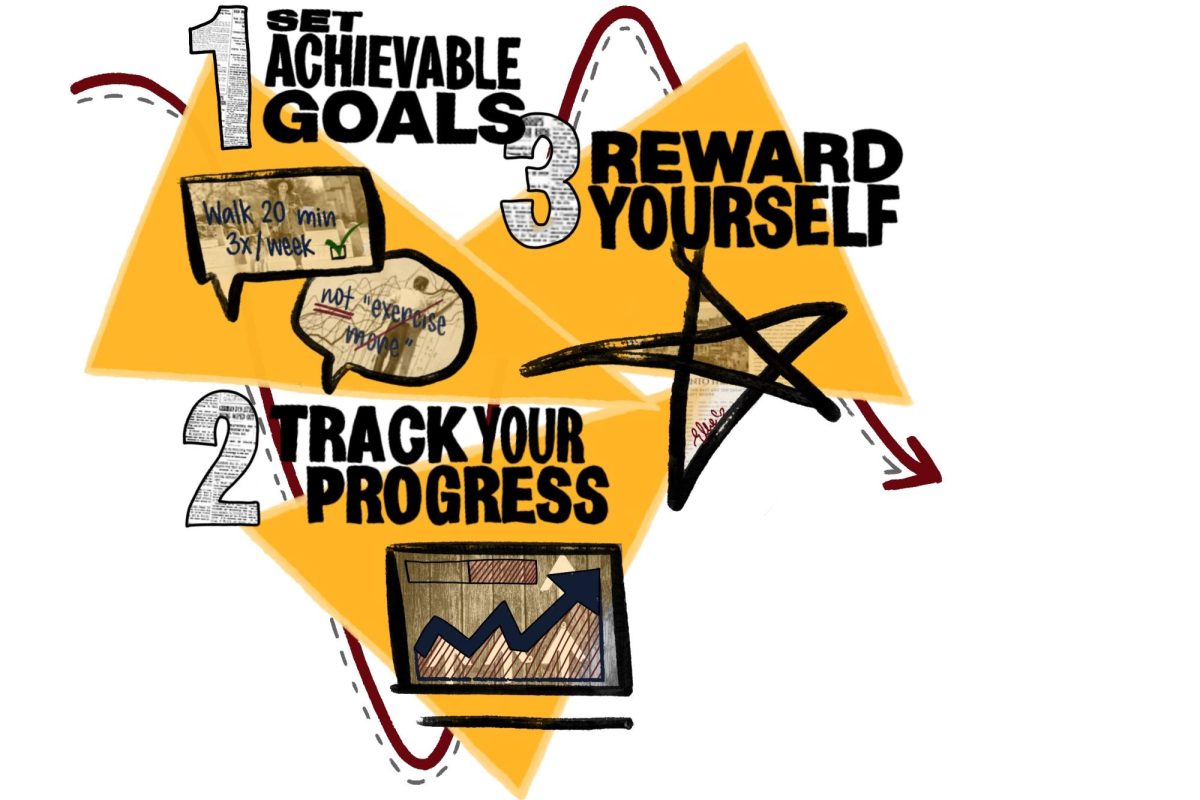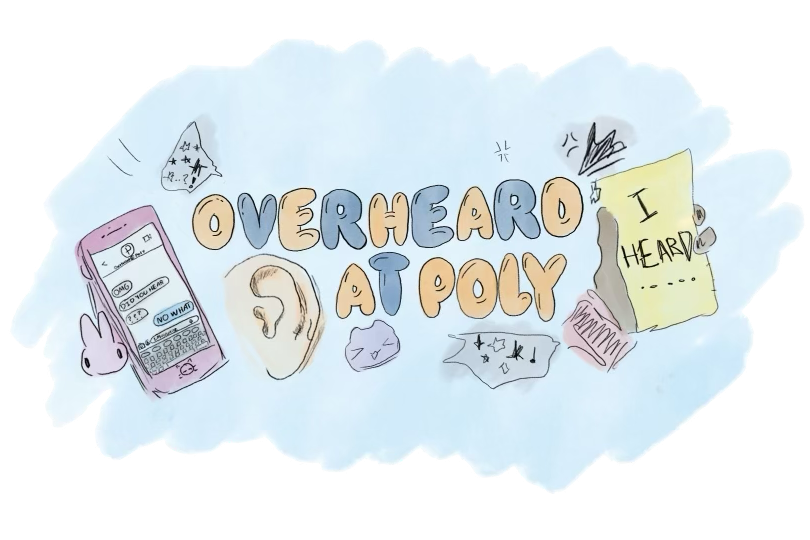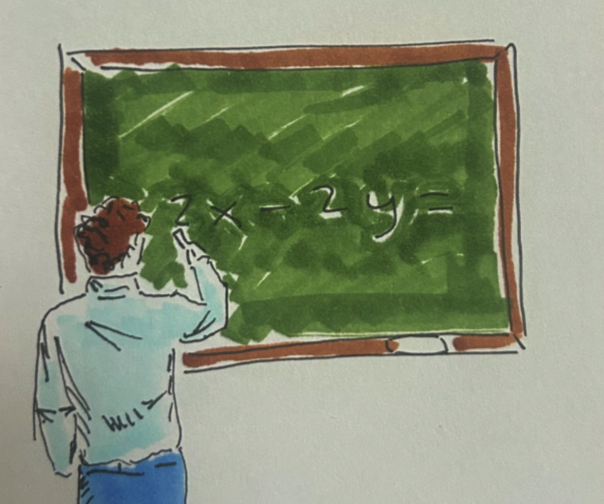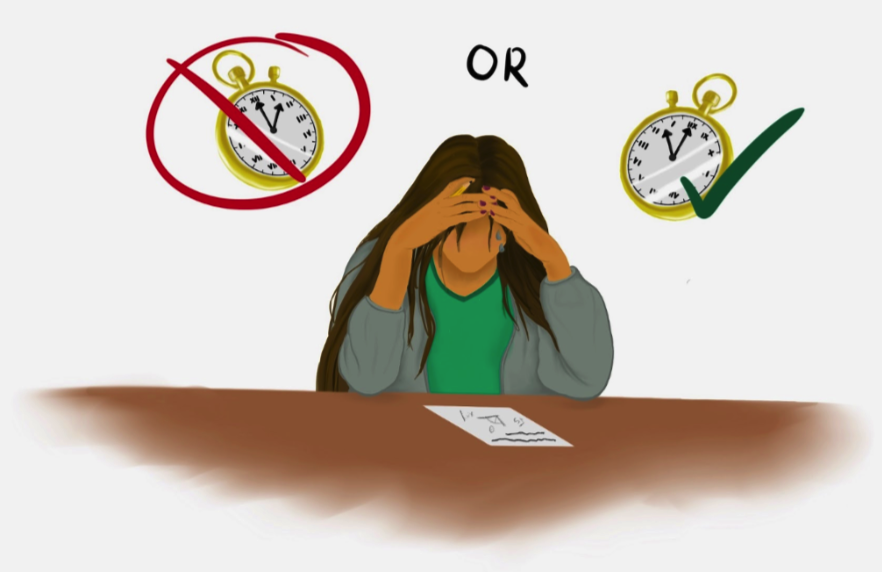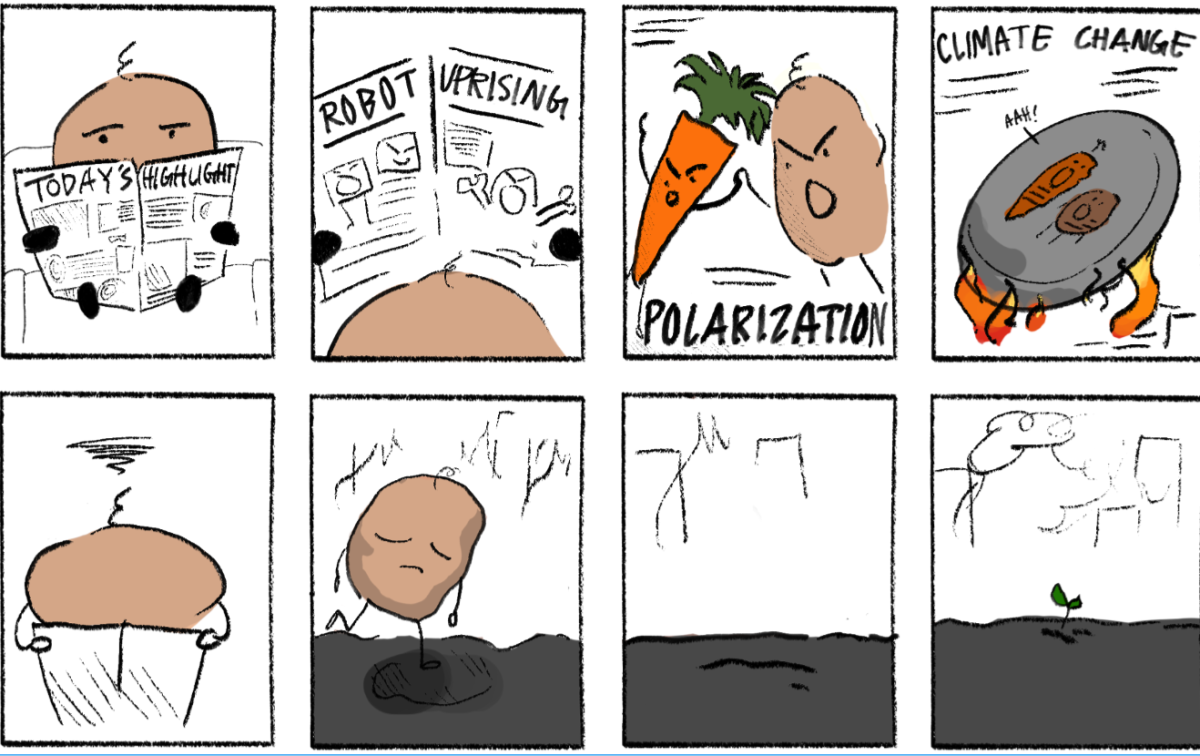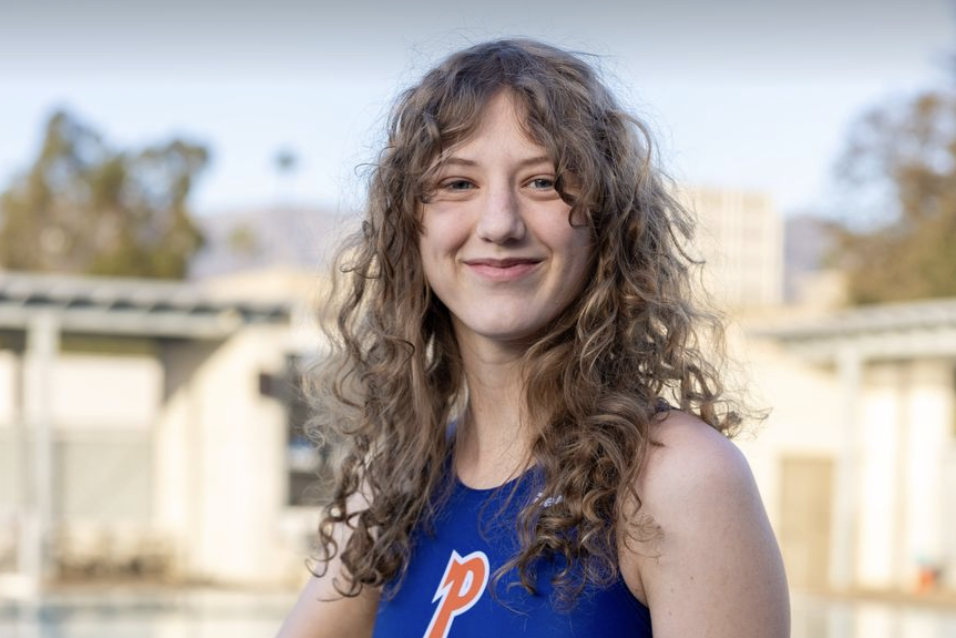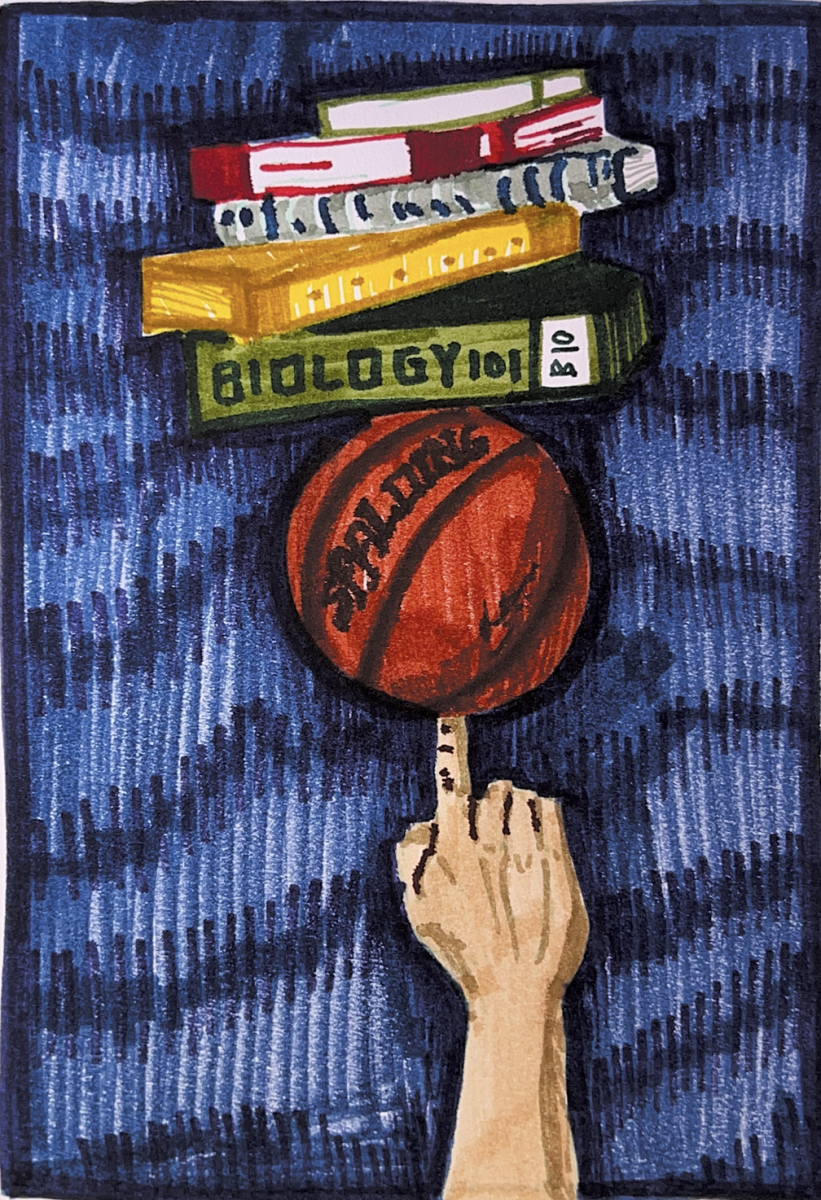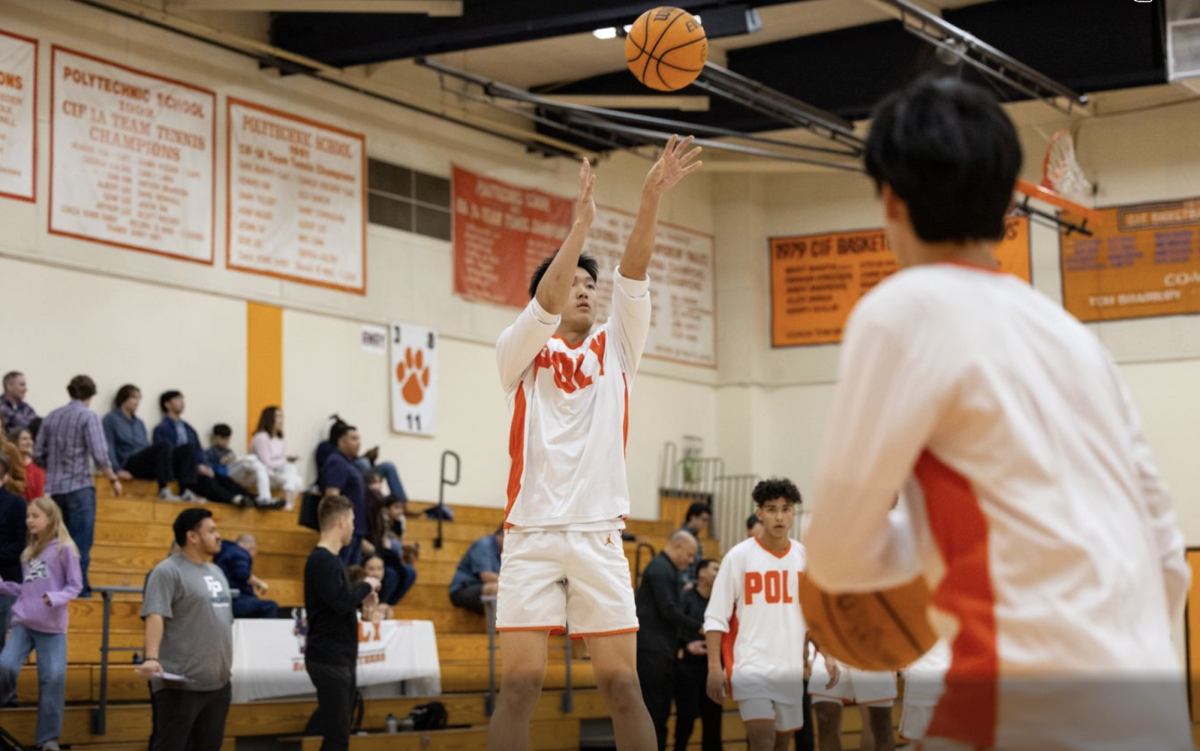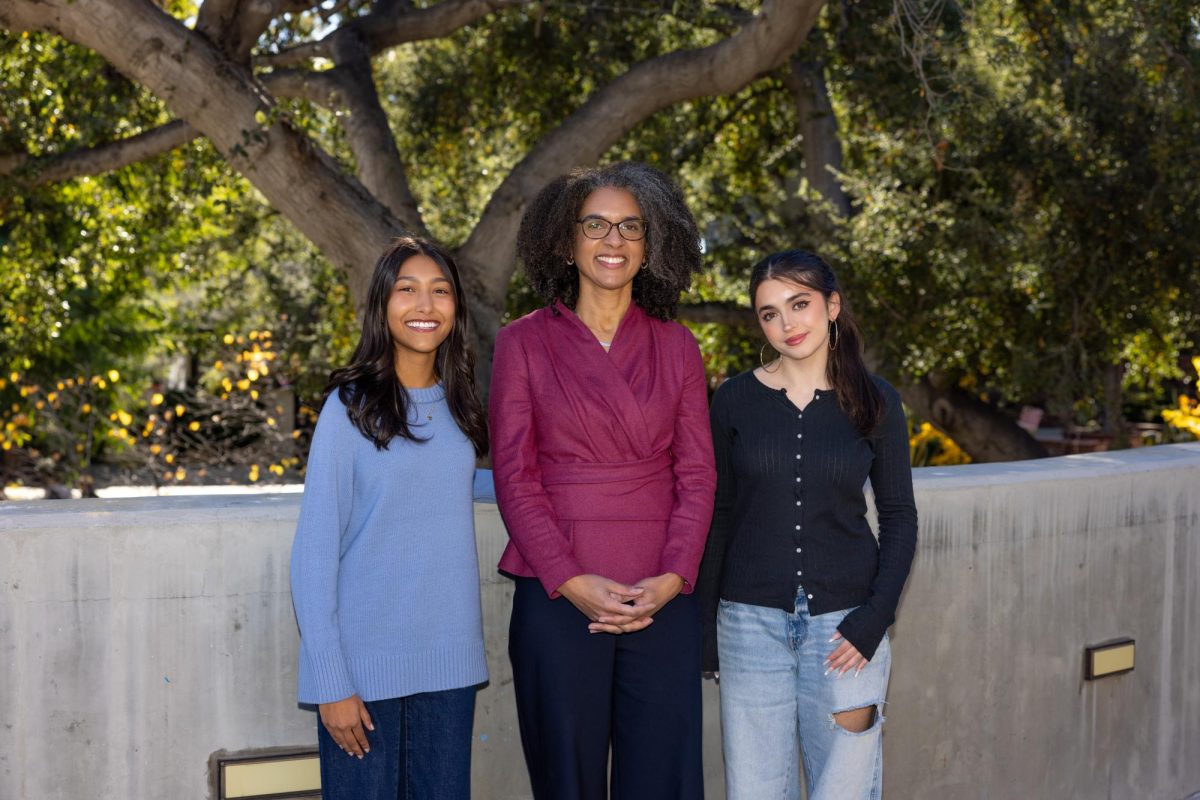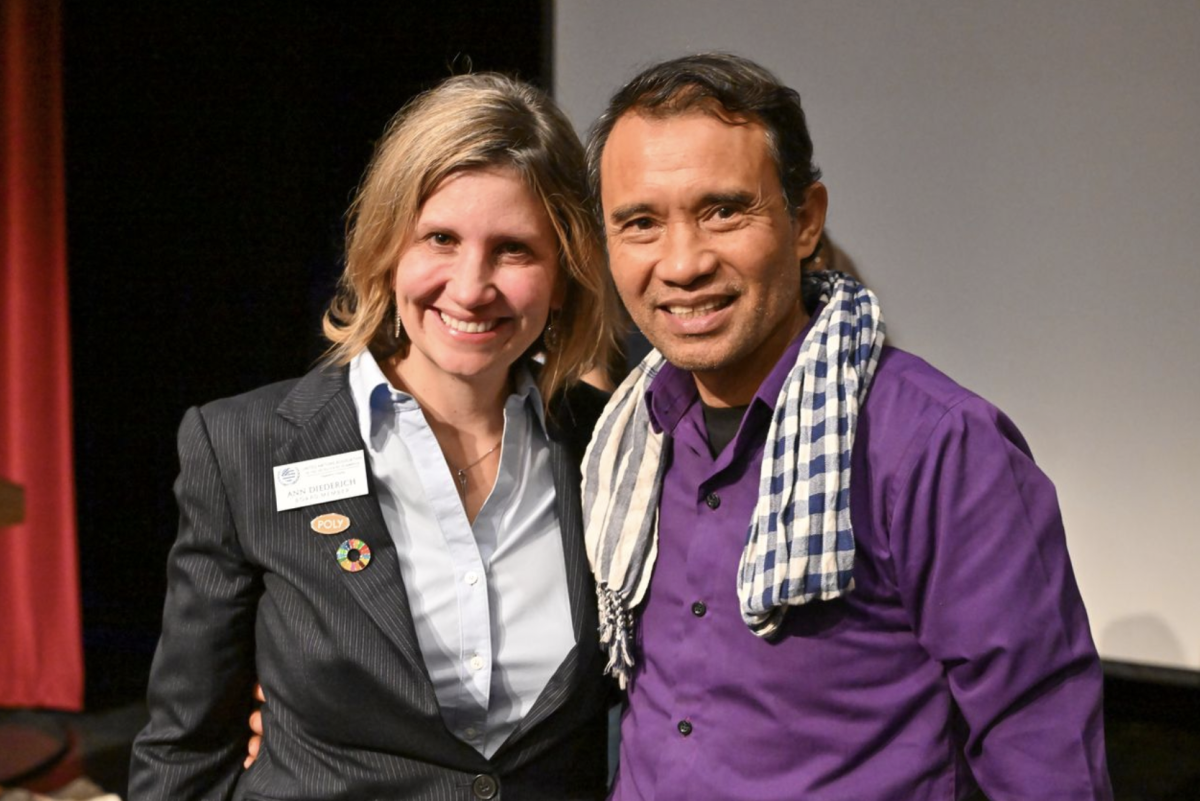On the evening of Oct. 23, Garland Auditorium opened its doors to over one hundred Poly students, faculty and members of the United Nations Association (UNA) community. Pasadena’s UNA Chapter consists of seniors Janie Drum, Evelyn Younger and Audrey Tomlin; juniors Katie Sam and Shaan Srinivasan and sophomores Maddie Delbridge and Filiz Fish. Along with this year’s Global Scholars cohort, the UNA Chapter hosted Arn Chorn-Pond, a survivor of the Cambodian genocide of 1975, to recount his riveting story.
As recounted in his award-winning biography, “Never Fall Down,” Chorn-Pond shared his personal experiences surviving the atrocities of the Cambodian genocide that occurred under the rule of Pol Pot and the Khmer Rouge, resulting in the deaths and forced labor of nearly two million people. The Khmer Rouge aimed to restore “old Cambodia” by prioritizing a communist agrarian society. In its wake, the genocide left the remaining survivors of Cambodia scavenging for remains of their culture.
Chorn-Pond began by telling the story of his forceful removal from his family at the age of nine and the evacuation of millions of people in a mere few days by the Khmer Rouge. Sharing chilling stories of the atrocities he witnessed, Chorn-Pond credited his survival to his ability to play the flute for the soldiers of the Khmer Rouge. He demonstrated his skill with his haunting rendition of a Khmer Rouge melody, effortlessly moving his fingers to create cohesive and euphonious tunes that rang and echoed throughout the theater.
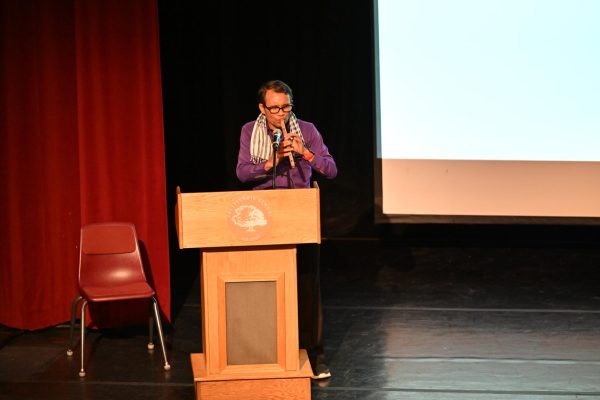
Chorn-Pond then spoke about his experience in America, where he met “the father of his second life,” a man by the name of Peter Pond, who rescued Chorn-Pond from his state post genocide.
Additionally, he shared his experience assimilating into a typical American high school and the ostracism he experienced from his White peers.
Senior Zan Srinivasan, a Global Scholar who introduced Chorn-Pond at the event, expressed, “I was impressed by Mr. Pond’s ability to turn something so dark into something so bright. His ability to take this trauma of oppression that he experienced and create a platform of healing people and to make connections through music is beyond inspiring.”
One overarching theme that permeated throughout Chorn-Pond’s speech was the normalization of allowing oneself to cry freely. He stressed the importance of releasing emotion, particularly in circumstances as difficult as the Cambodian genocide. Additionally, he addressed “children of the future,” who might be prompted to pick up guns and weapons. Instead, he encouraged them to utilize music as a tool. Chorn-Pond endorses the idea of music over violence and music as a catalyst for healing through his organization, Cambodian Living Arts.
Upper School World Languages teacher Ann Diederich, who currently serves as President of the United Nations Association Pasadena Board and Co-Director of the Poly’s GIP Program, shared, “Arn’s involvement with Amnesty International, Facing History and the Global Citizens Circle reminds us that we need to work actively to seek out each other’s humanity and build peace, even with those communities that we have struggled to find points of commonality or agreement. In Arn’s case, music and art is the great unifier and he has committed himself to traveling throughout the world to actively promote peace.”
In March of 2024, a group of Poly students looks forward to traveling to Cambodia in collaboration with Cambodian Living Arts, an opportunity made available through the Global Scholars Program.

